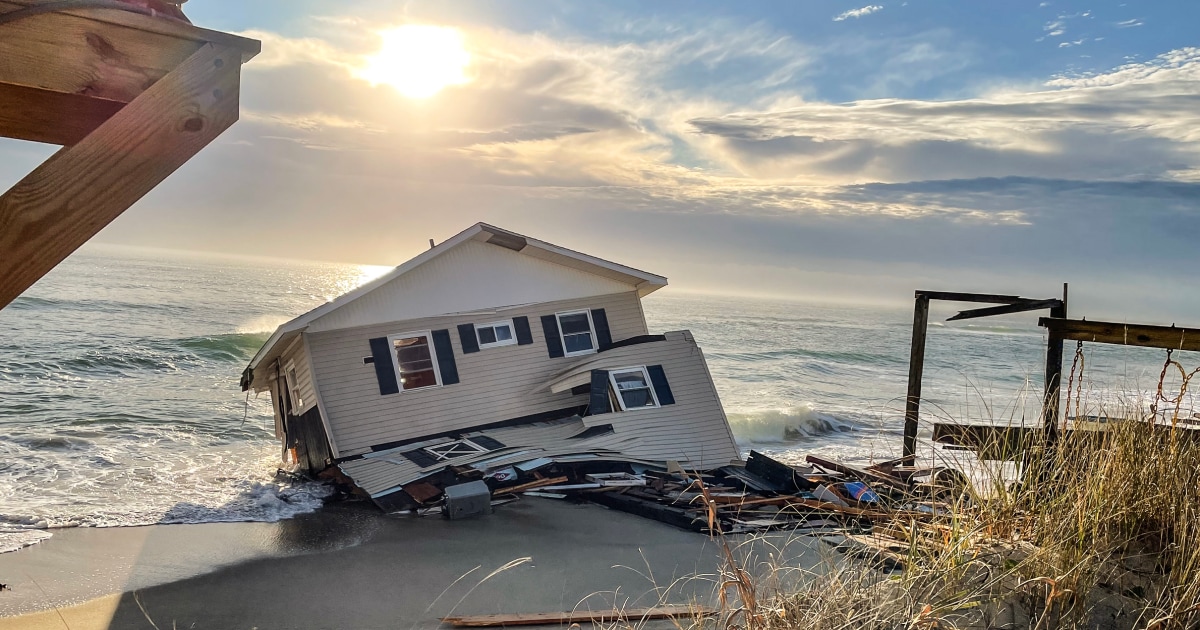
A home partially collapsed into the Atlantic Ocean and sent debris floating for miles along beaches in North Carolina, federal officials said Wednesday.
The collapsed home on Ocean Drive in Rodanthe was primarily pushing its remnants between there and Salvo in Dare County, about a 4-mile stretch along the Cape Hatteras National Seashore, according to a statement from the National Park Service.
But debris has also been spotted farther away, officials said.
Visitors “should use caution when participating in recreational activities on the beach and in the ocean between the villages of Rodanthe and Salvo due to debris from a collapsed house,” officials said.
They noted debris has floated as far south as seven miles away from the Rodanthe site where the house collapsed.
Park service personnel are working with Dare County employees to coordinate the removal of the house and its debris, authorities said.
NBC affiliate WAVY in Portsmouth, Virginia, reported the collapsed home was a five bedroom built in 1980. It had been listed as a vacation rental, the news outlet reported.
Another ocean home vanished in 2020 from Rodanthe, WAVY reported. Beach erosion continues to affect properties in the area, and some homes built years ago that were further away from the beach are now on the edge of the water, according to the outlet.
A 2020 study published in the journal Nature Climate Change concluded half of the world’s beaches could disappear by the end of this century as a result of climate change-induced coastal erosion and rising seas.
As global temperatures continue to rise, driven by emissions of heat-trapping greenhouse gases, melting ice will raise sea levels and extreme weather events are expected to become more frequent and intense. This would batter vulnerable coastlines around the world, according to the researchers at the European Union’s Joint Research Centre in Ispra, Italy.
If these processes are left unchecked, it could result in the “near extinction” of 50 percent of the globe’s sandy beaches by the year 2100, they said.
Denise Chow contributed.
Source: | This article originally belongs to Nbcnews.com










